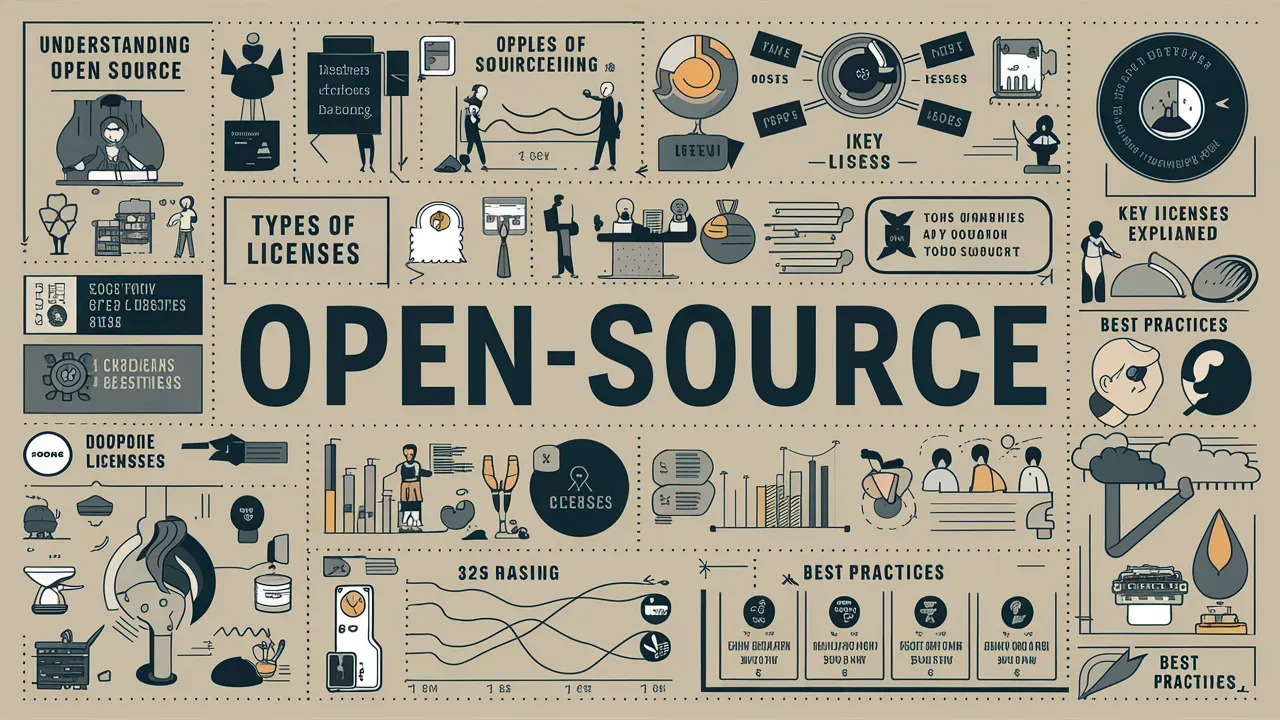The significance of the open source code is that it motivates innovation by removing the barriers between innovators, prospective innovators and programmers.
The open source process is a method of software development in which contributors freely submit a code to a project leader, who in turn makes the improved code widely available to the public through an open source software. Users who are going to use the open source software must typically consent to the terms and conditions of the copyright owner of the open source software who, through such terms and conditions, may impose variety of restrictions. As a result, a contractual relationship is established when a user decides to use an open source code or software under the terms of the copyright owner of the open source software.
Open Source and Law
Throughout the world, a person created a creative work such as a code or software is protected under a copyright as the work constitutes an intellectual property. Such copyright protections are generally offered in accordance with the copyright laws of the respective country. As a copyright owner; owner of the software or a source code has various exclusive rights. Such rights can be summarized as follows:
- Exclusive right to make copies;
- Exclusive right to create derivative works;
- Exclusive right to distribute copies of the original software or code or the derivative works; and
- Exclusive right to grant exclusive or non-exclusive licenses to other parties regarding the rights mentioned above.
Essentially an open source code or software copyright owner, under their exclusive right to grant licenses, may grant licenses to the public under the terms and conditions of a license agreement. There are several criteria set by the Open Source Initiative (“OSI”) and OSI approves the licenses of an open source software or code and certifies them. Certification has become a perquisite for the adoption of software or code by the open source community; some organizations only permit software licensed under and OSI-approved license to be hosted on their website.[1] The substantial criteria for approval are as follows:
- Free Distribution: The license shall not restrict any party from selling or giving away the software or code. The license shall not require a royalty or other fee for such sale.
- Source Code: Existence of a source code is required and distribution of such source code or software is required. Source code must be in a preferred form where user can modify such source code or software.
- Derived Works: License must allow modifications and derived works and it must be allowed to be distributed under the same terms of the open source license.
- No Discrimination Against Persons or Groups: The license must not discriminate against any person or group of persons.
- No Discrimination Against Fields of Endeavor: The license must not restrict anyone from the use of an open source code or software in a specific field. To give an example, license shall not restrict the source from being used in cancer research.
- Distribution of License: The terms and conditions of the license shall apply to all to whom the open source code or software is redistributed without the need of entering into another license by the relevant parties.
Open Source License Types
There are several different license types depending on the conditions of the license. General principles of such licenses are universal however there are some key differences between such licenses.[2]
Permissive licenses: Berkeley Software Distribution License (“BSD”) and Massachusetts Institute of Technology License (“MIT”) are grouped as permissive licenses as they have minimal requirements regarding the distribution of open source code or software. They generally have restrictions imposed upon the user related to the marketing and promotional activities. They also include warranty and liability disclaimers that states that the copyright owner promises nothing about the software and the copyright owner is not liable for the damage caused by the use of open source code or software. MIT also makes it possible for the user to sublicense open source code or software.
Apache License: Apache license has more restrictions concerning the redistribution of the open source code or software. For example, users must give a copy of the Apache License to the end-user if they have created a derivate work using the relevant open source software or code. Another restriction is that the users must cause any modified files to carry prominent notices stating that the user changed the files located in the open source software. Apache license has additional restrictions compared to permissive licenses regarding marketing and promotional activities.
General Public License (“GPL”): GPL has a distinctive feature compared to the abovementioned licenses. As prescribed in GPL Version 2, users cause any work that users distribute or publish, that in whole or in part contains or is derived from the relevant open source code or software or any part related to them licensed under GPL, to be licensed as a whole free of charge to all third parties under the terms of the GPL. This provision guarantees that all derivative works in connection with the GPL would also be deemed as software licensed under GPL. In accordance with such term, creators that used open source code or software licensed under GPL for the creation of a derivative work shall make such public.
Open Source Licensing and its Implications in Turkish Law
Intellectual property rights pertaining to codes and software are protected by the provisions of the Code of Intellectual and Artistic Works Law numbered 5486 and dated 13.12.1951 (“Law”). As per the conflict of law rules, intellectual property rights are governed by the law of the country in which protection measures are sought. In addition, abovementioned licenses do not contain applicable law clauses. For that reason, for the injunctions sought for the infringement of the intellectual property rights occurred in Turkey, Turkish law may be applicable.
License agreements related to such intellectual property rights are not stipulated in Turkish law compared to other contract types such sale and purchase and proxy agreements. Nevertheless, abovementioned licenses constitute a contract between the parties (copyright owner and the user) and it may be considered as a synallagmatic contract as both parties undertake to perform or omit their obligations related with the license.
As for the warranties and limitation of liability provisions prescribed in abovementioned the licenses, in accordance with the Turkish law, limitation of liability arising from the willful misconduct and gross negligence is not possible. Thus, limitation of liability provisions in abovementioned licenses may not apply for certain cases.
Since open source codes and software are popular tools for creating derivative works and if such derivate works are subject of a business transaction, parties should diligently review such works for the purpose of reviewing any open source code or software used in the derivative work. Parties may draft warranty clauses such as: “This Software does not contain any open source code or software.” or “To the Knowledge of the Company, no software belonging to the Company is distributed with any software that is licensed to the Company pursuant to an open source license”.
[1] Rosen, Lawrence. Open source licensing. Vol. 692. Prentice Hall, 2005.
[2] Ibid.
Author: Batuhan Ecin



